Free Stock Market Course: Part 5 Mutual Funds
Free File downloads
Course notes, Audio files, Assessments, Transcript files, and Course Outline: https://spxinvestingblog.com/downloads/
My Exclusive Free Workshop: The Four P's of Building a Successful Investing Program → https://spxinvesting.mailchimpsites.com
Blog: https://spxinvestingblog.com
Facebook Group: https://www.facebook.com/groups/433843641082343
Recommended Reading: The Little Book of Common Sense Investing: https://amzn.to/3EQygql
Chapters:
00:00 Diversification
02:23 Mutual Funds
03:57 Prospectus
06:03 Types of Mutual Funds
10:22 Benefits of Mutual Funds
11:33 Recommended Reading
12:00 Additional Advantages of Mutual Funds
15:02 Net Asset Value (NAV)
16:25 Disadvantages of Mutual Funds
18:05 Additional Disadvantages of Mutual Funds
21:58 Market Conditions
23:43 The Debate
25:56 Advantages and Disadvantages
29:07 A Change in Alternatives
Module 2 Section 4
What is a Mutual Fund?
Diversification
Some investors find owning individual stocks to be rewarding, while others consider this risky.
Another alternative is often sought.
Mutual Funds
Risk can often be avoided by “pooling” money with other investors and putting money into a mutual fund.
Professional money manager.
The mutual fund manager takes the pool of money from many investors and invests it on their behalf.
There are many kinds of mutual funds.
Prospectus
Every mutual fund is required, by law, to publish a Prospectus.
A mutual fund cannot invest “outside” the parameters stated in the Prospectus.
An investor MUST read and understand the Prospectus before investing in a mutual fund.
The Prospectus used to contain lots of legalese and hard-to- understand terminology. However, this has been changed recently to make it much easier to understand.
Types of Mutual Funds
There is virtually a mutual fund available for any type of investing that an investor might desire.
Mutual funds can invest in:
Indexes Sectors Regions Countries Types of stocks Bonds Stocks and Bonds
New mutual funds are being created, and other mutual funds go defunct each day.
Benefits of Mutual Funds
Long-term investors for creating wealth.
Additional Advantages of Mutual Funds
Dividend and Interest Reinvestment:
Convenience:
Common and easy to buy.
Low minimum investments
Pricing:
Net Asset Value
A stock price can change multiple times within a minute.
When the market closes for the day, the last price of the stock is known as the closing price.
Since mutual funds are a basket of securities, their values are reported as the Net Asset Value (NAV), calculated shortly after the market closes and then published by the mutual fund company.
Current NAV’s can be found online or in financial publications.
Disadvantages of Mutual Funds
"Trade-offs.”
Fees: 12 B-1 fees.
There are websites and services that allow investors to compare fees.
These are fees that are paid in order to have money managed and invested on behalf of investors.
A mutual fund may have an excellent year or even experience several outstanding years. However, this is no guarantee that future returns will be the same, better, or even positive.
Additional Disadvantages of Mutual Funds
Management Abuses:
Churning: Overtrading.
Turnover: Replacing stocks often. Chasing winners after they have won.
Window Dressing: selling losers before the end of the quarter to make returns look better.
Tax Inefficiency:
Turnovers, redemptions, gains, and losses during the year can be taxable events.
Poor Trade Execution:
Trades must be made before the cut-off time to get the same-day NAV.
Slower Timing:
Quicker executions are not possible. Also, strong gains may be chased and missed.
Market Conditions
Market conditions can be an advantage for mutual funds but also a disadvantage.
Advantage: Avoid using emotions
Disadvantages: Staying in when getting out is best.
Since the Prospectus dictates what a mutual fund can do, a mutual fund manager is bound to do what the Mutual Fund says it will do regardless of current market conditions.
If the market is going up or down, a manager MUST trade according to the Prospectus.
The Debate
Actively managed mutual funds vs. passive mutual funds.
Opinions can run high.
Active fund managers try to beat the market (SPX).
Passive investments have more investment flows and greater consistent historical returns.
Active investing tends to become more popular with market declines.
Advantages and Disadvantages
Passive Investing Advantages
Low fees
Transparency
Tax efficiency since there are usually fewer capital gains.
Passive Investing Disadvantages
Limitations
Lower returns than desired
Active Investing Advantages
Flexibility
Hedging
Tax Management
Active Investing Disadvantages
Higher fees
Greater risk
A Change In Alternatives
Up until the late 1990s, mutual funds were probably the best alternative for Individual Investors.
However, a new trading vehicle was developed that many believe may lead to the demise of mutual funds.
-
 48:07
48:07
The SPX Investing Program
2 days ago $0.01 earnedS&P 500 Daily Market Update for Thursday May 30, 2024
44 -
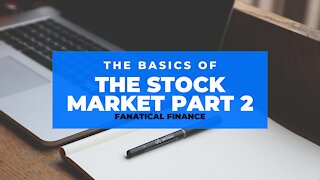 4:19
4:19
Fanatical Finance
2 years agoUnderstanding the Stock Market Part 2! | What is the Stock Market?
645 -
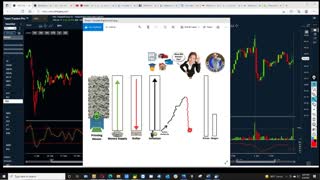 8:17
8:17
The Phil's Gang Radio Show Channel
2 years agoStock market crash starting to unfold part 22
63 -
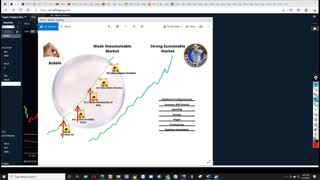 8:51
8:51
The Phil's Gang Radio Show Channel
2 years agoStock market crash starting to unfold part 16
29 -
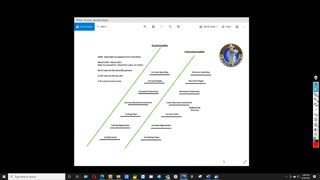 8:24
8:24
The Phil's Gang Radio Show Channel
2 years agoStock market crash starting to unfold part 15
17 -
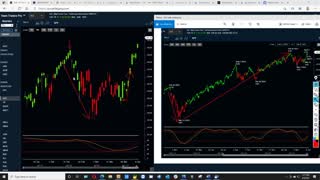 7:29
7:29
The Phil's Gang Radio Show Channel
2 years agoStock market crash starting to unfold part 14
40 -
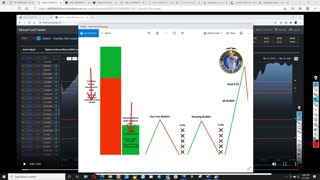 7:06
7:06
The Phil's Gang Radio Show Channel
2 years agoStock market crash starting to unfold part 13
18 -
 3:29:53
3:29:53
SonnyFaz
1 day agoEric Kelly Trains Sonny FULL STREAM
45.4K12 -
 9:32
9:32
China Uncensored
17 hours agoBad Things Are Happening In Taiwan...
46K26 -
 38:24
38:24
Tucker Carlson
14 hours agoTucker Carlson and Donald Trump Jr. Respond to the Trump Verdict
175K607